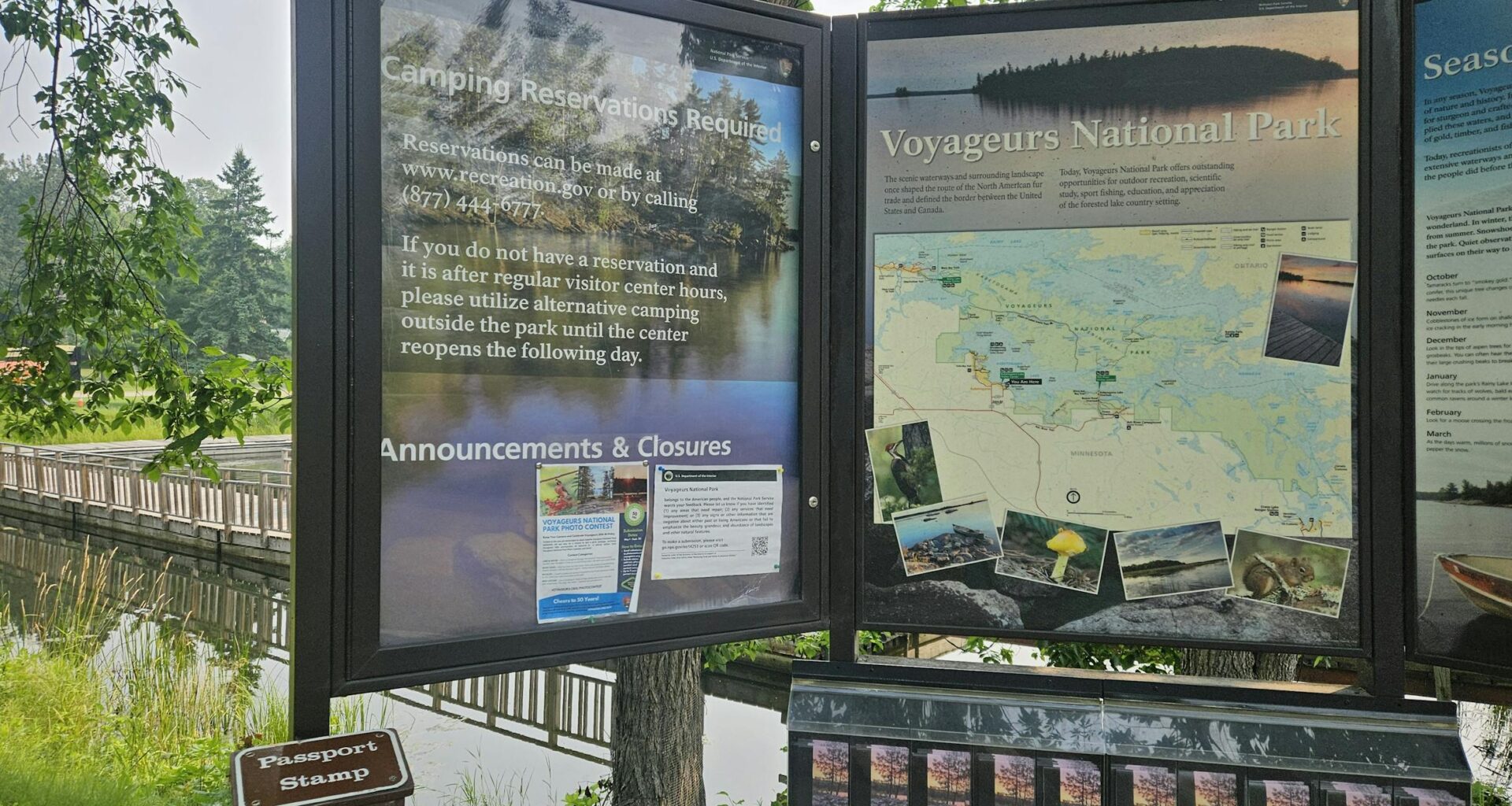Drews said he was inspired to teach children about their Ojibwe culture and language because of what happened to his grandmother.
“As a child, she was sent to [an Indian boarding school] and forced not to learn her language” and to give up her culture, he said.
“It feels like the momentum had been going well for our people, but this? It’s tragic,” he said, adding that he plans to reach out to U.S. Sen. Amy Klobuchar for help.
Librarians, historians and University of Minnesota data experts started a “Save our signs” campaign to document monuments, signs, books and websites to preserve any historic information that is removed. To date, the public has submitted to the campaign more than 3,000 photos nationwide, including 92 from Minnesota.
Nationwide, the lists submitted from parks to the Department of Interior for possible removal included scores of plaques and books referencing George Washington owning slaves and Franklin Roosevelt’s polio, according to the Washington Post. One book reported was “Wives, Slaves, and Servant Girls: Advertisements for Female Runaways in American Newspapers 1770-1783.”
![]()
The U.S. Department of Interior has signs posted at all 433 national parks and monuments asking public to report possible anti-American signs or materials. Historians and free speech advocates fear censorship. (provided)
Park employees in Minnesota and Wisconsin said they did not know what the Interior Department intended to do with the submitted lists or who would be evaluating their appropriateness.
